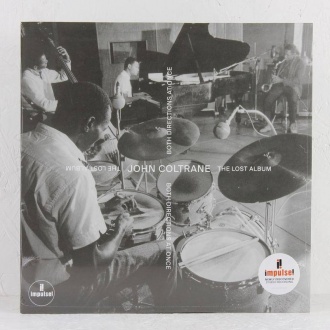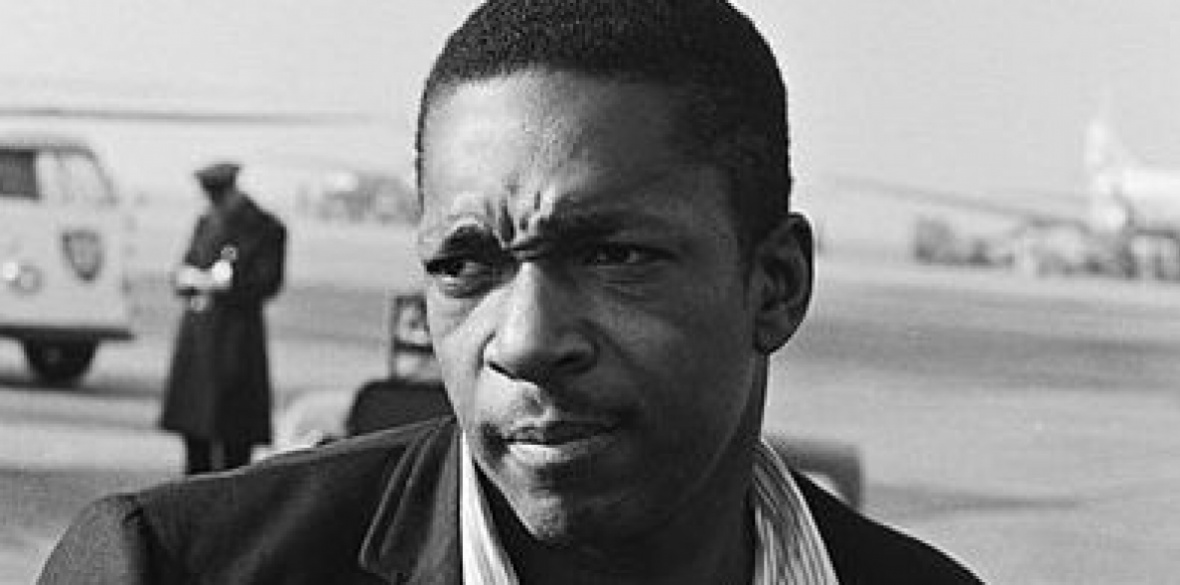This is the last article you can read this month
You can read more article this month
You can read more articles this month
Sorry your limit is up for this month
Reset on:
Please help support the Morning Star by subscribing here
John Coltrane
Both Directions at Once: The Lost Album
(Impulse!)
AT THE beginning of March in 1963 the John Coltrane Quartet — Coltrane on soprano and tenor sax, McCoy Tyner on piano, Jimmy Garrison playing bass and Elvin Jones on drums — recorded 14 tracks in New Jersey.

Unknown and unissued for 55 years, and only existing on a reference tape Coltrane brought home from the studio before he left to play an evening session at the Birdland jazz club in Manhattan, those tracks were recorded at a momentous time.
This was the year of the Kennedy assassination and also when the civil rights resistance was boiling in the US south, particularly in Birmingham, Alabama, and in August 250,000 people marched on Washington. Eighteen days later, Birmingham's Sixteenth Street Baptist Church was bombed by racists and four girls were killed as they changed into their choir robes. The Coltrane Quartet responded with the memorial Alabama as part of their Live at Birdland album.
Throughout that March “lost” session, there's a sense of social and musical ferment. Fellow tenor saxophonist Wayne Shorter remembers Coltrane describing this inner tumult as “starting a sentence in the middle and then going to the beginning and the end of it at the same time ... both directions at once.”
His soprano saxophone surges on opener Untitled Original 11383 before Garrison's inspired solo, first with his bow, then with his fingers. Tyner lays out on piano, with Jones's drums ascendant on Nature Boy and, through Untitled Original 11386, Coltrane's soprano dances and leaps, his notes blithe and full of felicitous life, impacting on Tyner's sweeping solo.
Coltrane seizes the melody of Franz Lehar's Vilia from the operetta The Merry Widow and transforms it into an unlikely frolic of black freedom, with Elvin's drums buoyant with joy. Slow Blues is a reflective and cogent essay, with the quartet in powerful accord with every phrase of Coltrane's restless horn.
What is in his head as his saxophone reaches out? Is it Birmingham or the campaign against police brutality in Albany, Georgia?
Or is it the words of Martin Luther King? “We must rise above our fears. There is nothing to be afraid of if you believe and know that the cause for which you stand is right.” Those words and their context resonate through 'Trane's sound.
One Up, One Down has a walking bass solo by Garrison and Jones's crashing drums alongside Coltrane's rampaging tenor and there are four different takes of the classic Coltrane opus Impressions, each one seething with its life and times and the second take especially animated.
Coltrane sounds low-down and very bluesy and guttural on take six of One Up, One Down, which concludes this double album, undertaking an earnest drums-horn colloquy with Elvin before Tyner comes in for a sprinting solo. Beneath it all pounds the eternity of Garrison's pulsating bass heartbeat — an ending which has no end.
Any retrieval of the music of John Coltrane's greatest quartet is a precious find. His tenor saxophone contemporary Sonny Rollins likened the discovery of these recordings to “finding a new room in the Great Pyramid.” Quite a hyperbole, perhaps, but not for old jazz-geezers like me.











